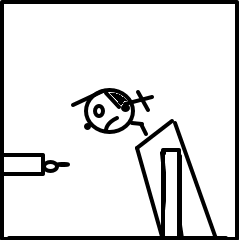Edited by Dan Leo, Professor of 18th Century British Jurisprudential Studies, Olney Community College; author of Bozzie and Dr. Sam: The Case of the Two Hanged Men, the Olney Community College Press.
Art direction by rhoda penmarq (layout, pencils, inks, tie-dyeing by eddie el greco; lettering by roy dismas) for penmarqartitdown™ productions: “High-quality art at low-income prices!”
to begin at the beginning, click here
for previous chapter, click here
|


















No comments:
Post a Comment